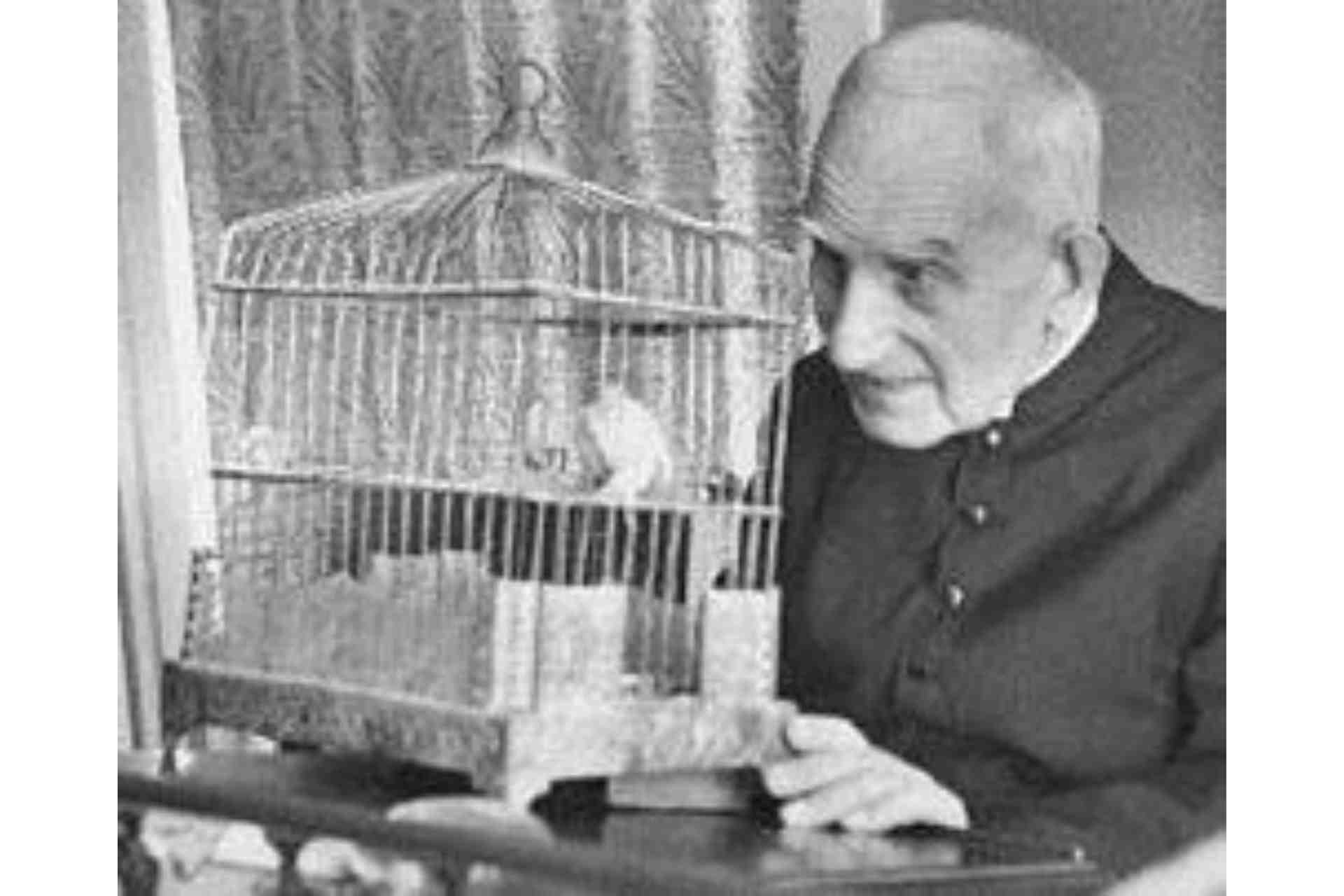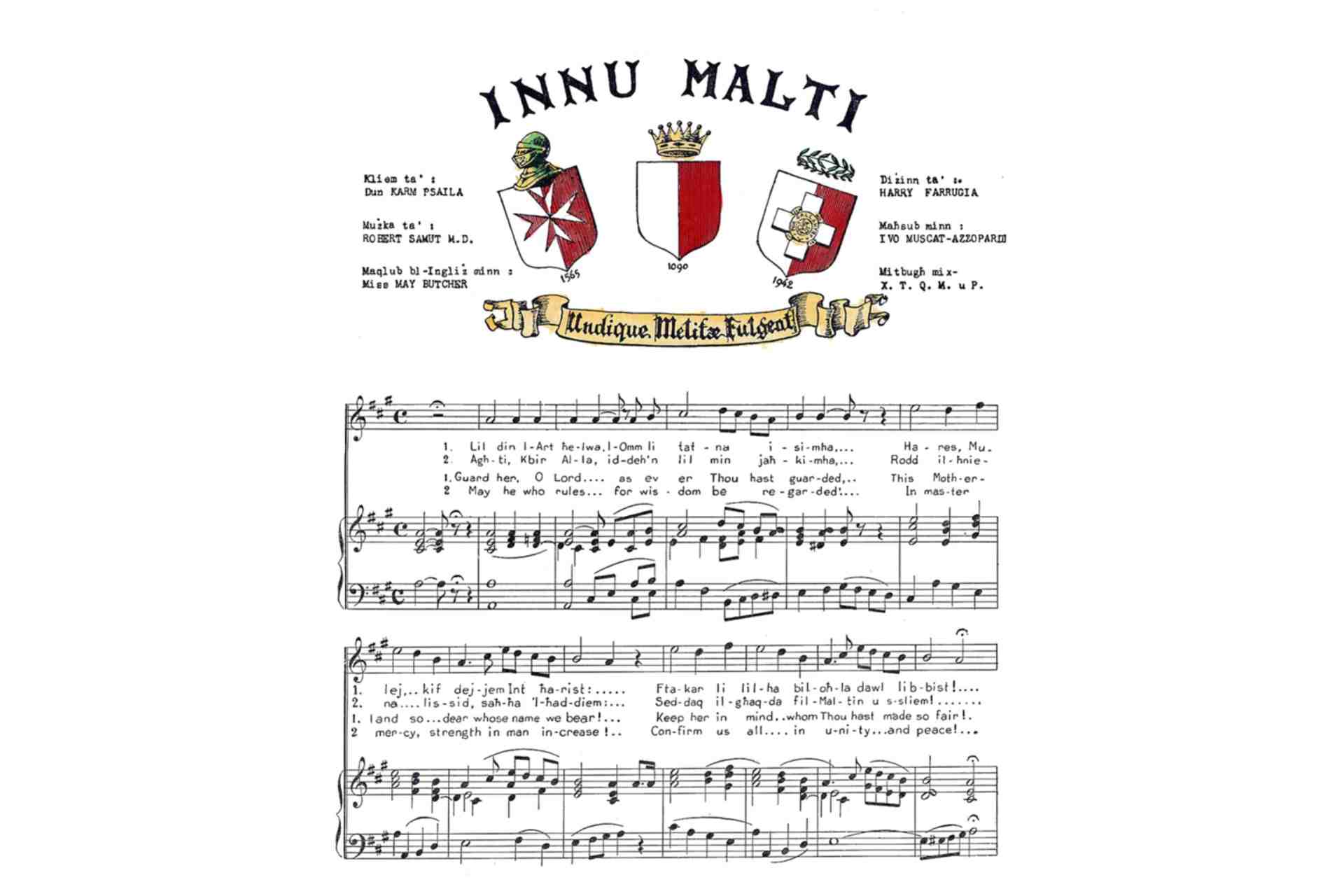Dun Karm Psaila: A Literary Journey Marked By Solitude
by Tiziana Micallef

October is a special month for Maltese literature as we celebrate Dun Karm Psaila's birthday. Malta's widely recognised national poet was born on 18th October 1871 in the quaint village of Haz-Zebbug and died on 13th October 1961 without ever seeing Malta become independent or witnessing the officialisation of the Innu Malti.
As a priest, writer, and poet, Dun Karm Psaila is an important figure in the history of Maltese literature. Through his writings, he was able to transcend multiple ideologies and thoughts that helped shape Malta's cultural and national identity and eventually inspired poets, authors, politicians, and intellectuals that followed. In this article, we'll be taking a close look at his life and the important themes he focused on to elevate Malta's national identity—despite starting his journey to write with the Maltese language only from 1912 onwards!
From Carmelo to Dun Karm Psaila
Before being known as Dun Karm Psaila, the poet-priest was simply known as Carmelo Psaila. This was the name he received at birth from his rustic-origin parents. His parents were both farmers, but as Carmelo's father was also a sailor, he used to travel frequently between Malta and Greece. Thus, as a young, active boy, Dun Karm became very attached to his mother, whose influence is felt in multiple of his poems, especially in his early writing days.
Dun Karm's childhood revolved around a simple rural life. After attending the primary school in Haz-Zebbug, he went to the seminary and was ordained a priest in 1894, at the age of 23. A year later, Dun Karm started teaching various subjects at the seminary as well, until he was appointed assistant librarian at the National Library of Malta in 1921 and then director of circulating libraries until his retirement in 1936. The year 1927 saw Dun Karm become the president of the Ghaqda tal-Kittieba tal-Malti.
Between the ages of 17 and 24, Dun Karm already had a noticeable repertoire of poems written in Italian, which was then widely used as the language of the people. He collected these poems in his first book, Foglie d'alloro which included 37 works in total and was published in 1896. Dun Karm's first poems in Italian were mainly about a Romantic life of peace and calm, with prominent poets of the time like Monti, Foscolo, and Manzoni being primary inspirations. But, these themes quickly turned into more complex ones when the course of life brought him an ugly twist.
No Escape From Solitude
Dun Karm Psaila's life was hit by two main shocks, which contributed in creating beautiful verses with very deep thoughts from then on. The first episode was when he lost his mother in 1909. The second one was in 1910, when, due to the new administrative church rules on the island, priests were no longer allowed to live on the seminary grounds. As a result, Dun Karm ended up living alone with solitude as his companion in a house in Valletta, where he'd end up living for 26 years. This great feeling of solitude and the portrayal of an inner sentimental and moral journey of the self became very present in his works, which were also balanced with a high level of spirituality throughout.

Dun Karm's Literary Journey
Throughout more than 40 years of his literary journey, Dun Karm explored and developed multiple thoughts and reflections from one verse to the next. By starting off from simple thematics that make up Maltese society and, very attached to his rural origins, the poet used the Maltese landscape, nature, family, popular cultural traditions, and historical events as the main stage. Along with colourful descriptions of unique elements that shape Malta's cultural and national identity, as his writing matured, Dun Karm combined such thematics of Romanticism with more complex thinking to bring out one primary theme: solitude. It was as if he was on a constant journey of meditation where he reflected on personal solitude and then on the wider scale of human life.
When Dun Karm's literary journey was at its peak, he was writing about the complexities of human life and existentialism. However, despite solitude remaining a constant throughout his works, Dun Karm still managed to give a voice to Maltese society's aspirations through the sentiments of patriotism and nationalism. Such sentiments were expressed via poems portraying different historical events and giant personalities like Mikiel Anton Vassalli with that feeling of romantic nostalgia and spirituality to highlight the importance of owning one's Maltese identity—never from a political point of view.
Dun Karm's literary journey is seen as a long pilgrimage in search of the self, in the search of immortality, in the search of a relationship with God, in the search of knowledge, in the search of simple life, in the search of living with sorrow—many opposing reflections and internal conflicts that made Dun Karm remain relevant to this day in different aspects of life.
L-Innu Malti
One of these aspects that has remained relevant is undoubtedly the Maltese National Anthem, which is still played and sung in various events as part of Malta's distinguished identity. The verses of the formerly known as The Hymn of Malta were penned by Dun Karm himself. In 1921, the director of primary schools in Malta, Albert Laferla, wanted to create a sort of anthem that school students could sing. So, he turned to Dun Karm to compose lyrics to accompany a piece of music that Robert Samut had composed.

Written in the form of a prayer to God, The Hymn of Malta started being sung in different governmental schools and then publicly, for the first time, in December 1922 and January 1923 during two concerts at the Manoel Theatre.
On 22nd February 1941, The Hymn of Malta was officially designated as Malta's national anthem or Innu Malti by the government, and its status was confirmed in the 1964 Independence Constitution.
Dun Karm Psaila Beyond Poetry
Dun Karm's life beyond the world of poetry saw him writing novels, translations, and publishing a Maltese-to-English dictionary. A major translation into Maltese that Dun Karm remains known for is Dei Sepolcri by Ugo Foscolo, which is a prominent long poem in Italian about the transcendence of death. Dun Karm was also given the title of honorary president of the Ghaqda tal-Kittieba tal-Malti for life, and in 1945, the Royal University of Malta granted Dun Karm a D. Litt. (honoris causa) as a recognition of his contribution to Maltese literature. In 1946, he was awarded the Guze Muscat Azzopardi gold medal, whereas Queen Elizabeth II made him Commander of the Order of the British Empire in 1956. Finally, in 1957, Dun Karm gained an ex-gratia pension from the Maltese government, also as a recognition of his work.
 Popular Literary Works Penned By Dun Karm Psaila:
Popular Literary Works Penned By Dun Karm Psaila:
- Minghar Ommi (1912)
- Lill-Kanarin Tieghi (1915)
- Il-Ghanja tar-Rebha (1927)
- Zaghzugh ta' Dejjem (1933)
- Wied Qirda (1933)
- Lil Mikiel anton Vassalli (1933)
- Il-Jien u Lil hinn Minnu (1938)
- Lill-Bandiera Maltija (1946)
If you want to discover other works by Dun Karm Psaila try visiting one of the bookshops available around Malta and Gozo.
Go to the Culture Tips section to learn more about amazing Malta and Gozo.



